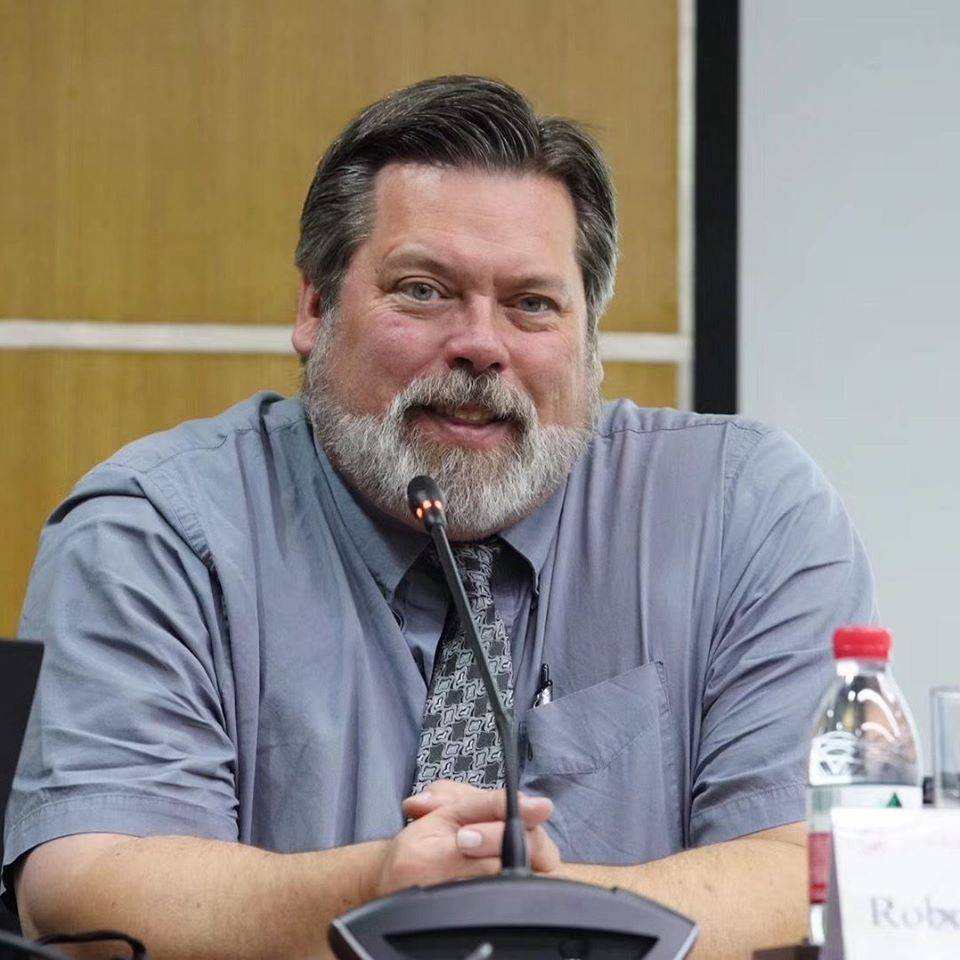Julie Cooper | May 18, 2021

The Spatial Imagination in the Humanities is a free virtual conference set for May 20-21 sponsored by the National Endowment for the Humanities (NEH) Distinguished Teaching Professor in the Humanities and the Texas State College of Liberal Arts.
For Dr. Robert Tally, a Professor of English at Texas State University who is wrapping up his three-year term as the NEH Professor, the theme of the virtual conference is based on his research and the topic of most of the 15 books he has authored or edited. Tally explains that spatial literary studies is an approach to literature that emphasizes spatial relations, space, place, mapping, architectural elements, and so on in the text, which can be seen as a form of literary cartography or a figurative map.
“Initially, we had hoped that this conference would be mainly for Texas State students, graduate and undergraduate,” Tally said. He had plans for a smaller, in-person conference on the San Marcos Campus. Because of COVID-19 and the need to be remote, the conference has taken on a decidedly international flavor with panel participants from India, Egypt, Romania, Russia, Tunisia, Mexico, Italy, and Canada. Panelists also represent seven states.
Keynote speakers include Thadious M. Davis, Geraldine R. Segal Professor of American Social Thought and professor of English at the University of Pennsylvania; and Ricardo Padrón, an associate professor of Spanish at the University of Virginia. Davis is currently writing a monograph on Pulitzer Prize-winning author Alice Walker and she serves as co-editor of the Gender and American Culture Series, University of North Carolina Press. Padrón’s recently published monograph, The Indies of the Setting Sun: How Early Modern Spain Mapped the Far East as the Transpacific West (2020) examines the role of Spanish writing about the Pacific and Asia in its ongoing conceptualization of the Indies as a geopolitical category.
Tally says the panels are made up of mostly instructors and doctoral students, but the lone Texas State panelist, Elektra Jordan, is a sophomore studying political science and philosophy. Jordan will participate on May 20, presenting “Mapping Despair: Literary Cartography in Kierkegaard’s Sickness Unto Death.”
“I am most excited about presenting with international scholars at this conference – it feels incredible to be presenting alongside students from around the world, including Ph.D.’s and professors who are experts in this field,” Jordan said.
Tally, who joined Texas State in 2005, said he is mainly interested in, “what I call literary cartography – in the sense the writer figuratively maps the world as described in a novel. Take a novel by Hemingway or Faulkner and the way the characters encounter the world becomes a kind of mapping.”
He mentions a novel that has actual maps — J.R.R. Tolkien’s Lord of the Rings, and the conversation veers to the setting of Hogwarts in the Harry Potter novels and the ways that Tally said, “characters encounter the world.”
“I’m really not interested in spatial literary studies being seen as some sort of technical subfield of literature or whatever, but just being a way of approaching literature where you are paying attention to things like space and place and spatial relations. There is a subfield of literary geography. You will occasionally have people in geography and other disciplines who work with literary studies in this way.”
The Spatial Imagination in the Humanities conference will run from 8 a.m. to 6:15 p.m. on both days. Tally said he expects participants will be dropping in and out over the course of the two days. To register, visit https://sc2021.wp.txstate.edu/.
Share this article
For more information, contact University Communications:Jayme Blaschke, 512-245-2555 Sandy Pantlik, 512-245-2922 |
